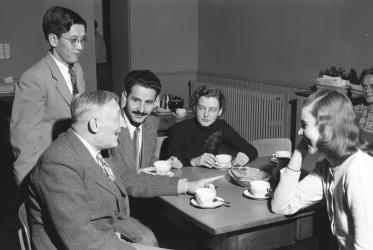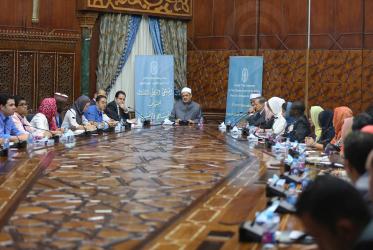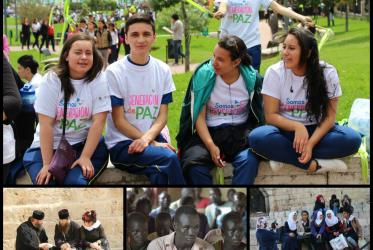Displaying 121 - 140 of 195
09 March 2017
“What can we contribute as a worldwide fellowship?”
06 March 2017
WCC general secretary speaks on religion and discrimination
14 February 2017
Plans for 2017 decided by WCC Executive Committee
01 December 2016
What does ‘prudence’ mean for dialogue and peace-building?
16 November 2016
Tveit offers input at religion and development meeting
03 October 2016
Bossey anniversary commemorates 70 years of heartfelt dialogue
28 September 2016
Religious leaders of many faiths talk peace in Assisi
21 September 2016
WCC general secretary reflects on peace in Palestine and Israel
20 September 2016
Hielke Wolters: Apostle of mission strategies
01 August 2016













